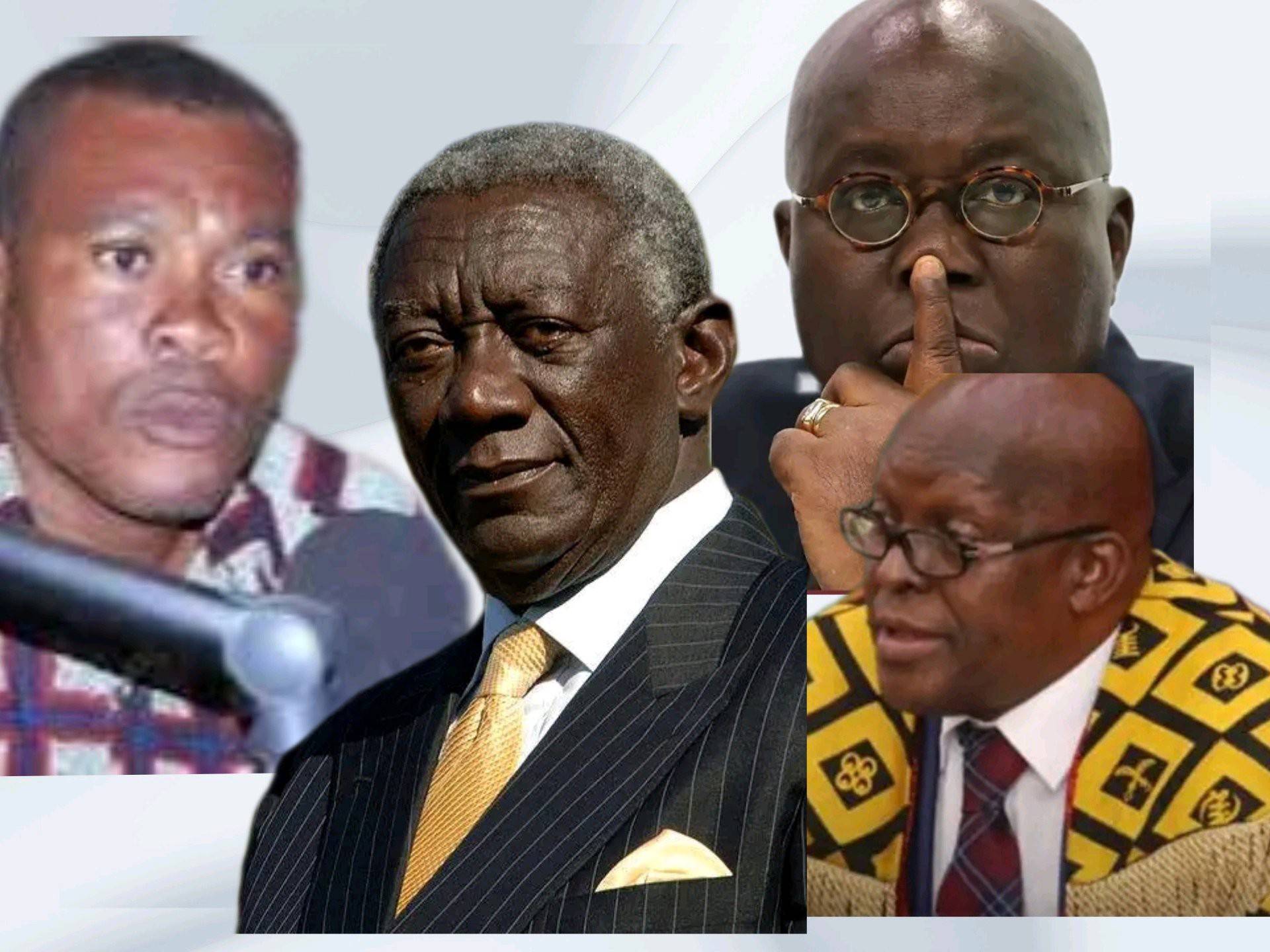Dela Edem, a member of the communication team for Ghana’s National Democratic Congress (NDC), has sharply criticized former President John Agyekum Kufuor following Kufuor's recent comments advising Speaker of Parliament Alban Bagbin to maintain better order in the legislative chamber. This advice came after Kufuor described the escalating tensions between Members of Parliament from the NDC and the New Patriotic Party (NPP) as "embarrassing," urging Bagbin to exercise stronger leadership to bring the situation under control.
However, Dela Edem did not take kindly to these comments. In a recent interview on TV XYZ, Edem voiced his concerns, branding Kufuor’s statements as hypocritical and suggesting that the former president's remarks displayed a selective sense of responsibility. Edem questioned Kufuor’s silence on other pressing national matters, particularly during moments when the current NPP government, under President Nana Akufo-Addo, was accused of actions that, in Edem's view, warranted Kufuor's intervention.
Expressing his frustration, Edem claimed that Kufuor’s words reflected a double standard, pointing out that the former president had not offered similar guidance or criticism when President Akufo-Addo allegedly took steps that adversely impacted Ghanaian businesses. In a passionate outburst, Edem stated, “Ex-President Kufuor is a hypocritical person. Hypocrisy will kill Ex-President Kufuor because he is using hypocrisy as cream to apply on his skin all the time in his office.â€
Edem further accused Kufuor of failing to intervene when President Akufo-Addo’s administration introduced banking reforms that reportedly led to the collapse of numerous indigenous banks, resulting in the loss of jobs for thousands of Ghanaians. These reforms, widely criticized by the opposition and some segments of the public, reportedly led to substantial financial distress among affected employees and small businesses. According to Edem, Kufuor should have used his position as an elder statesman to discourage the government from taking measures that, in Edem’s view, undermined local economic stability.
“President John Agyekum Kufuor was in this country when President Akufo-Addo borrowed 25 billion cedis just to collapse indigenous banks,†Edem alleged. “I was expecting that as an elder and more experienced statesman, Kufuor would advise against these actions, but he remained silent as Ghanaian businesses and 1.2 million workers were affected.â€
Dela Edem did not stop there. He also drew attention to issues of political violence, which he claimed occurred under Akufo-Addo’s leadership. Specifically, Edem highlighted instances of violence that, he said, tarnished the 2020 general elections and led to the loss of eight lives. He pointed to the notorious Ayawaso West Wuogon by-election incident as an example, claiming that security forces, allegedly linked to the NPP, committed acts of violence against civilians. According to Edem, these events were another instance where former President Kufuor’s voice was conspicuously absent, even though, in Edem’s view, such incidents demanded the former president’s intervention.
"If you don’t respect yourself, we will also not respect you,†Edem remarked, emphasizing his dissatisfaction with what he perceived as Kufuor’s selective criticism. He questioned why Kufuor chose this particular moment to speak out, given the many other critical issues in Ghana that, according to Edem, warranted Kufuor’s attention. In his view, Kufuor’s intervention in parliamentary matters was merely a display of bias and an attempt to further the interests of the NPP, rather than an honest concern for Ghana’s welfare.
Throughout the interview, Edem repeatedly stressed the notion that former President Kufuor had failed in his duty as a senior statesman. In Edem’s opinion, Kufuor’s silence on critical issues like job losses and political violence exposed a bias that undermined his credibility. By selectively criticizing Speaker Bagbin, Edem argued, Kufuor inadvertently highlighted his unwillingness to take a consistent stand on pressing matters affecting Ghana.
For Edem and many within the NDC, Kufuor’s remarks on parliamentary tensions may appear as an attempt to shift public attention away from what they see as the failings of the current government. The NDC communication team member claimed that Kufuor's intervention was ultimately intended to present the NPP in a more favorable light, despite what Edem described as widespread dissatisfaction with the party's governance.
This latest exchange adds to the ongoing debate about the role of senior statesmen in Ghanaian politics. Former presidents like Kufuor are expected to offer impartial guidance to support the nation's democratic institutions and to foster a climate of national unity. However, for Dela Edem, Kufuor’s selective interventions reveal a troubling lack of neutrality and a reluctance to hold the ruling government accountable.
The passionate remarks from Edem also reflect a broader frustration within the NDC, which has frequently criticized the NPP for what it describes as damaging economic policies and alleged authoritarian tendencies. As the political atmosphere in Ghana remains tense, especially within Parliament, figures like Dela Edem are calling on senior statesmen to adopt a more balanced and consistent approach to political commentary, rather than what they view as partisan selectiveness.
In conclusion, Dela Edem’s criticism of former President Kufuor underscores the deep political divisions currently affecting Ghana. As the country looks toward the next election cycle, the role of elder statesmen like Kufuor will likely remain a contentious issue, especially if they are perceived to be partial. For now, however, the exchange between Edem and Kufuor serves as a stark reminder of the ongoing struggles for accountability and impartial leadership in Ghana’s political landscape.


